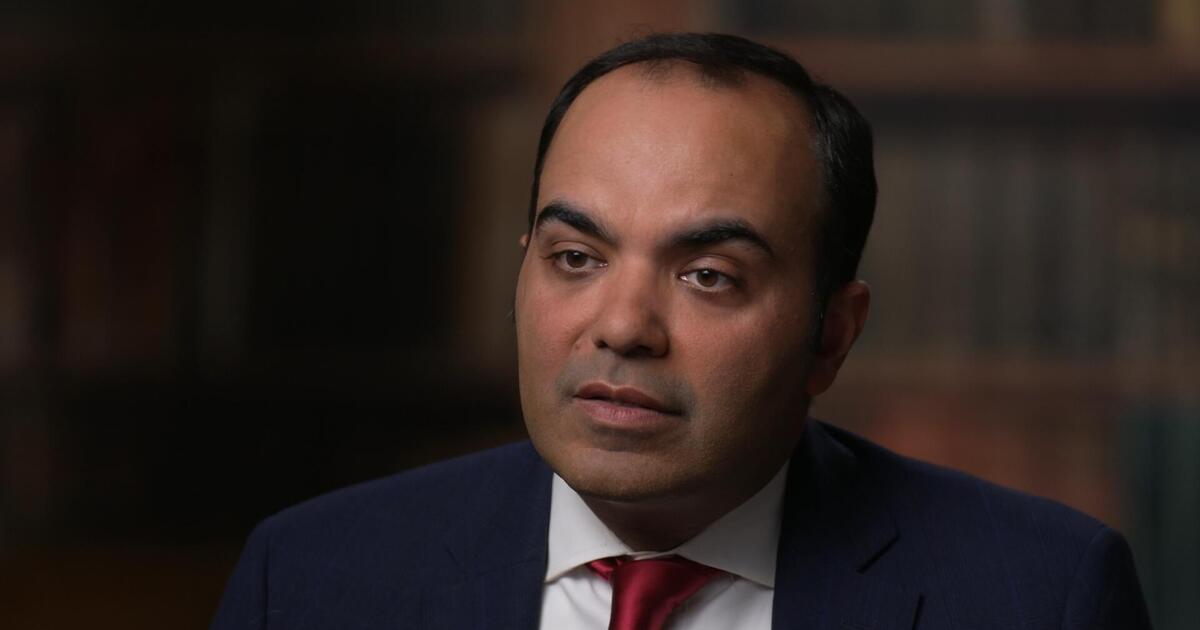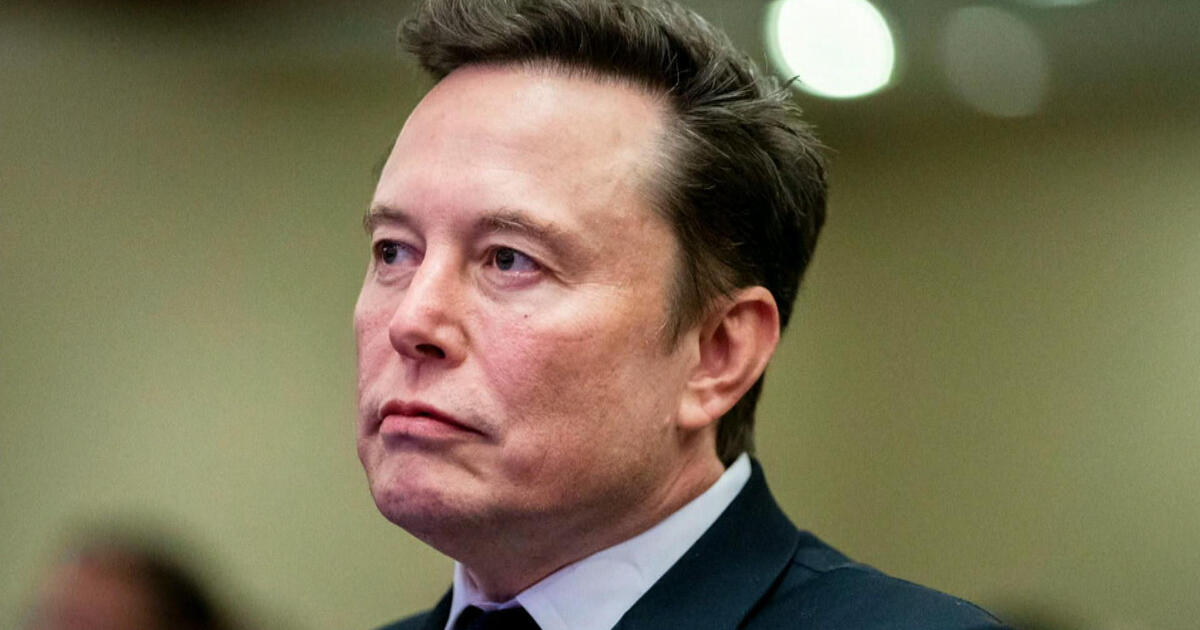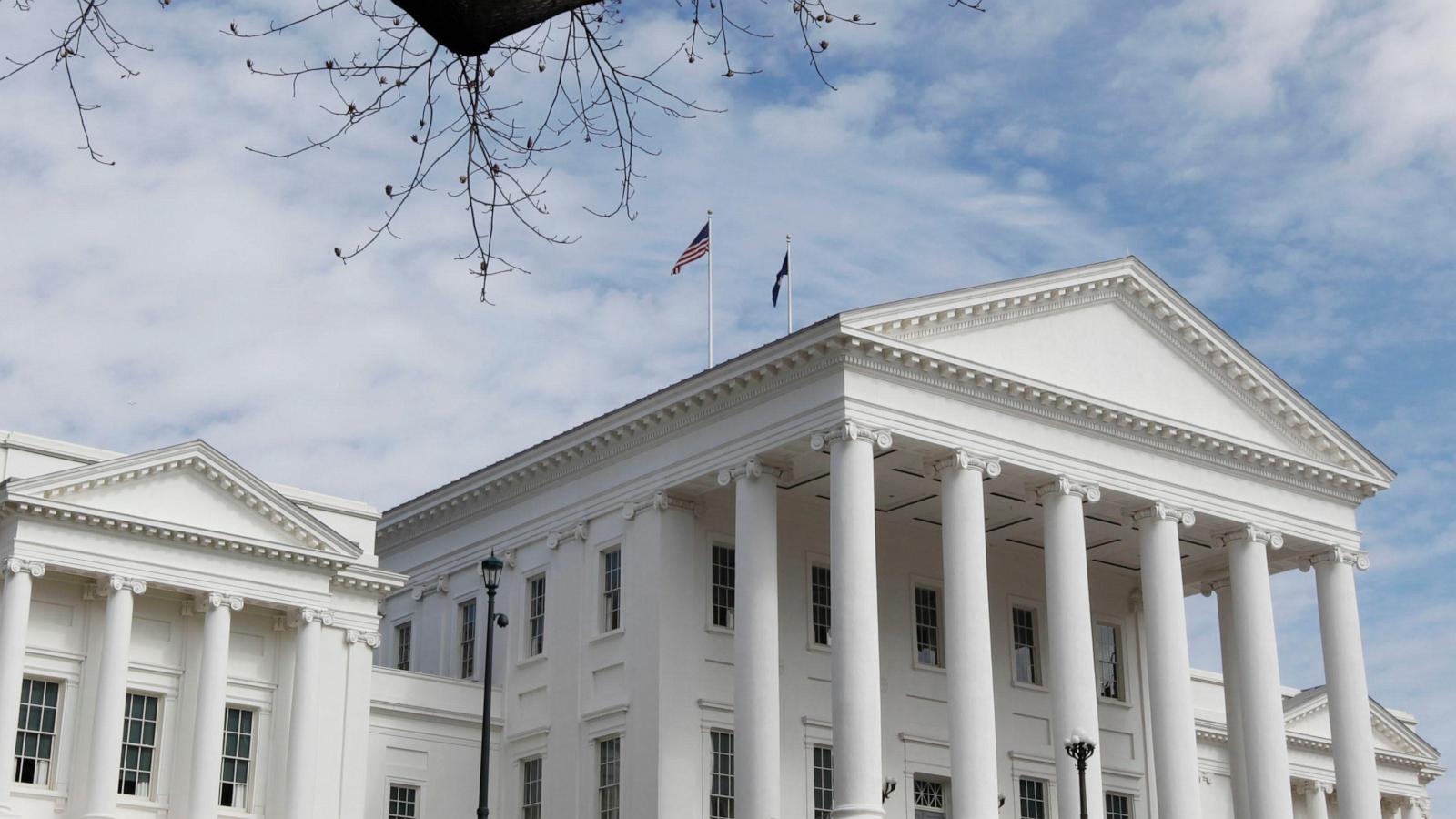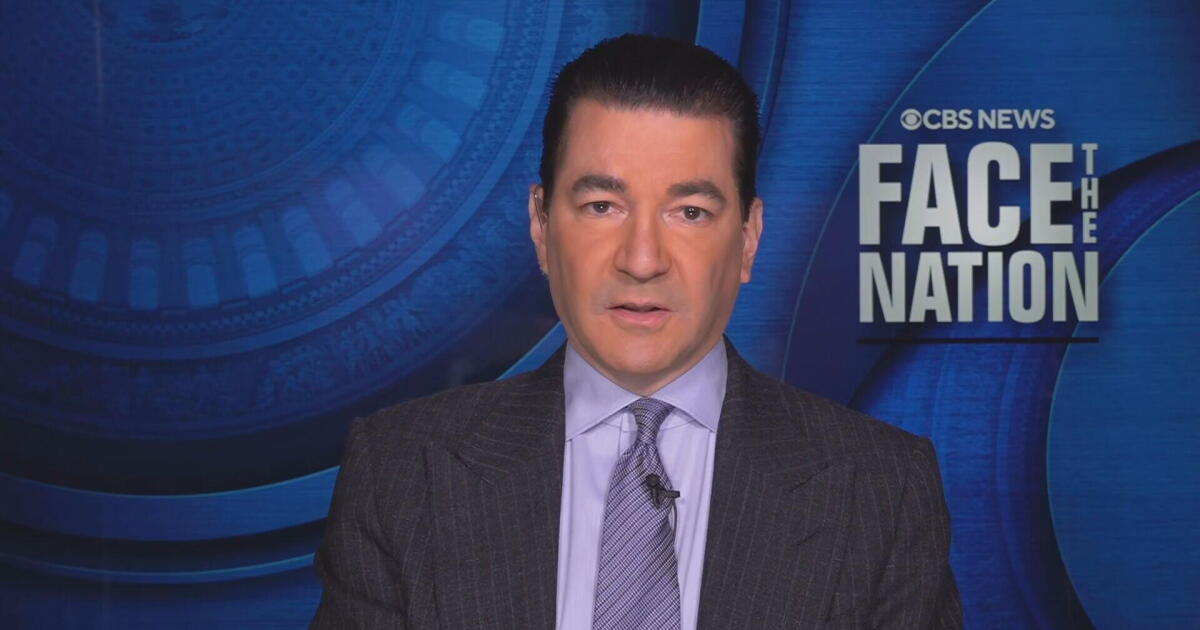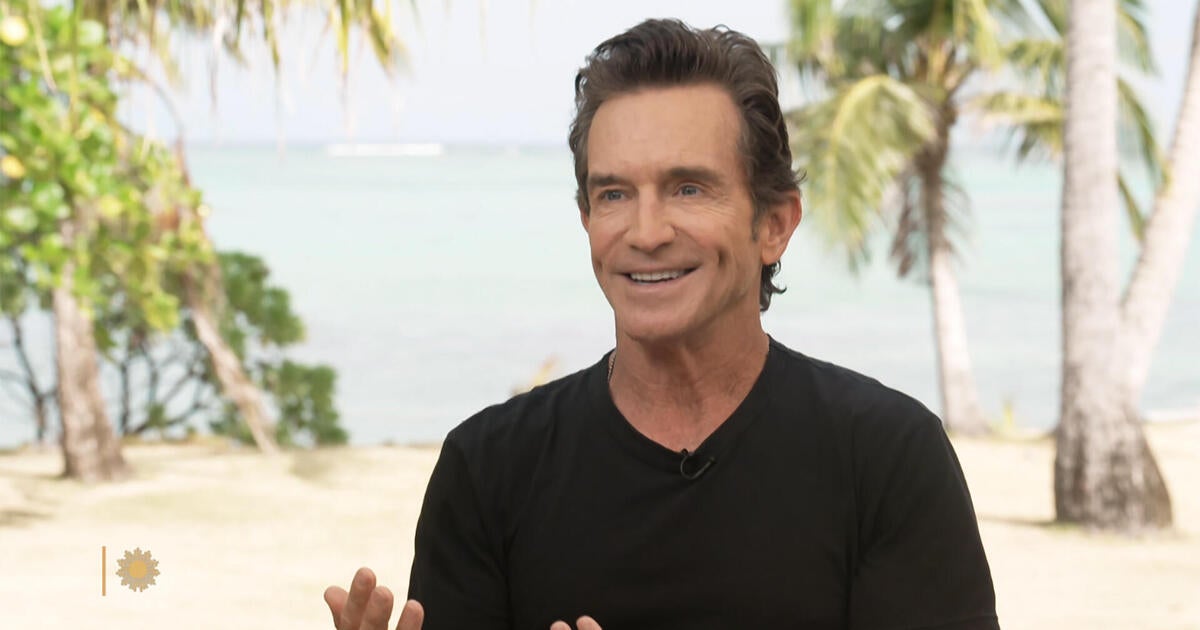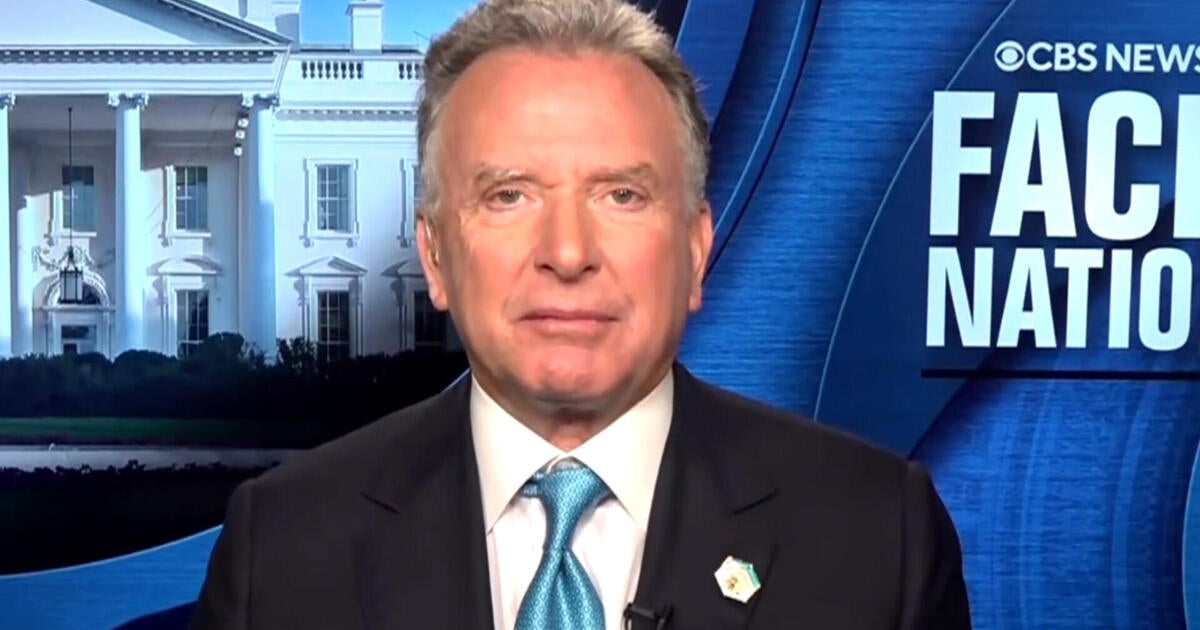CFPB under fire by President Trump, DOGE
In his role overseeing the Department of Government Efficiency, or DOGE, Elon Musk posted on X yesterday an order to all federal workers to report what they got done last week. Failure to do so would be taken as a resignation. This bombshell was dropped as teams of DOGE workers continue to zero in on one agency after the next: the IRS, Social Security Administration, and others that store your personal information.
One agency the president wants to expunge is the Consumer Financial Protection Bureau, the CFPB – created to shield Americans from financial fraud and shady lending practices. A DOGE team was given wide access to the bureau’s computers. What are they looking for? Are they downloading files? Deleting them? We don’t know.
Rohit Chopra was the director of the CFPB until February 1 when he was fired by President Trump. It was the first salvo against the bureau.
Lesley Stahl: Most people have never heard of the CFPB. Why were you targeted?
Rohit Chopra: Well that’s what’s so suspicious right now. It’s a pretty small agency. But here’s what’s interesting – the companies that the CFPB oversees are actually some of the biggest and most powerful.
Lesley Stahl: Like what?
Rohit Chopra: The biggest Wall Street banks, the biggest credit card companies, the biggest tech companies in Silicon Valley who are increasingly lurching into banking and finance.

60 Minutes
Lesley Stahl: And these companies don’t like it?
Rohit Chopra: Well, why would they?
Lesley Stahl: Right, why would they?
Rohit Chopra: They would want a situation where the agency is a lapdog rather than a watchdog.
The watchdog bureau – created by Congress – was the brainchild of Sen. Elizabeth Warren.
Sen. Elizabeth Warren (during CFPB protest): After the 2008 financial crash and the big bank bailout, Congress created the CFPB to protect people from getting swindled.
She’s now leading the uphill fight to keep the bureau alive.
Sen. Elizabeth Warren (during CFPB protest): For every person who wants to buy a home without getting scammed, this fight is your fight. For every student who wants to borrow money to go to school without getting defrauded, for every member of our military who doesn’t want to get trapped by some sleazy pay-day lender, say it with me? This is your fight. Oh and for every American who doesn’t want some weird Elon Musk suck-up searching through your personal, private data, this is your fight.
President Trump (in Oval Office): Pocahontas, Pocahontas, the fake, the faker.
With Sen. Warren’s connection, the president and conservatives in general dismiss the agency as a seat of woke radicalism.
President Trump (in Oval Office): It was a bad group of people running it… that was a vicious group of people. They really destroyed a lot of people.
Reporter (in Oval Office): Can you confirm it’s, your goal is to have it totally eliminated, the agency?
President Trump (in Oval Office): I would say yeah because we’re trying to get rid of waste, fraud, and abuse.

60 Minutes
Getting rid of waste, fraud, and abuse is a job the president handed to Elon Musk, and DOGE. But eliminating an agency that regulates tech companies creates a potential for conflicts of interest for Musk, especially given the secrecy of the project.
Elon Musk (in Oval office): I don’t know of a case where an organization has been more transparent than the DOGE organization. And then you can see: am I doing something that benefits one of my companies or not? It’s totally obvious.
If there’s one thing the DOGE operation is not, it’s obvious or transparent. Take the small team that was given access to the bureau’s computers. These are rare verified pictures of three team members entering the building on Friday, February 7.
Hanna Hickman: We heard from our colleagues that they’re camped out in the basement. And they’ve got papers up on the windows to keep people from looking in. And they’ve been accessing data, certainly.
Hanna Hickman was an attorney here until a week and a half ago.
Lesley Stahl: Who are these people?
Hanna Hickman: Software engineers, college dropouts, certainly nobody with—
Lesley Stahl: College dropouts?
Hanna Hickman: That’s what we’ve heard. I think if there was transparency people might feel more confident about what’s happening.
Three hours after they swept in, Elon Musk posted this on X: “CFPB RIP” – rest in peace. That day, President Trump appointed Russell Vought, an ardent critic of the bureau, as its acting director, and he announced on X he would stop funding the agency: “the spigot… is now being turned off.”
Then he sent employees an email telling them to “cease all” their work. The building was locked. Soon the firings started. Hanna Hickman and nearly 200 of her colleagues found out through a mass email.
President Trump (at summit in Miami): We virtually shut down the out of control CFPB, escorting radical left bureaucrats out of the building and locking the doors behind them.
Meanwhile, inside behind the locked doors, the team of young men were holed up in the basement, rarely leaving except reportedly to pick up a lunch order from Chipotle.
According to several sources, they were granted unprecedented access to the CFPB data systems, including to sensitive bank records – access that requires training and background checks.
Lesley Stahl: Were you vetted?
Hanna Hickman: Of course.
Lesley Stahl: How were you vetted?
Hanna Hickman: Every employee at the Bureau has to go through a background check before we’re hired. It includes a detailed run of our background, fingerprints, talking to neighbors and friends to make sure we are who we say we are. It’s a process that takes at least a couple of months before you’re hired.
The CFPB’s chief operating officer gave a sworn declaration saying the young workers “…were provided privacy and cyber security training…” and signed an NDA. But in response, the chief technologist, who just resigned, wrote, “…those trainings alone… would not be sufficient…” and there’s “…no mention of doge employees undergoing a background investigation…”
Lorelei Salas: I’m worried about your account number, your social security number being out there.

60 Minutes
Lorelei Salas and Eric Halperin are the highest-ranking civil servants to leave the bureau. After they were placed on administrative leave, both resigned.
Eric Halperin was in charge of all the bureau’s lawsuits on behalf of defrauded consumers. Both say they’re horrified by the idea of people rummaging through the bureau’s confidential files.
Eric Halperin: So we do have information – both proprietary business information, trade secret information and personal identifiable information for consumers that we collected in the course of our work that was necessary to do our work. If you’re a company, you want that info to stay private and to stay confidential.
Lorelei Salas ran a team of nearly 600 inspectors who examined the books of banks and other financial institutions.
Lorelei Salas: I think that companies that gave us their financial information and even trade secrets, they will probably be harmed if that information fell into the hands of competitors. So to give you an example, in the last few years, companies have begun using artificial intelligence to create models that then make decisions about whether you get a loan or not.
Lesley Stahl: And that’s in the computer?
Lorelei Salas: It’s in our systems.
Lesley Stahl: The algorithms are in the system?
Lorelei Salas: Yeah.
Lesley Stahl: So what the computers have in some cases are the secret sauce that a competitor could gain a lot from knowing.
Lorelei Salas: That is true.
Lesley Stahl: I’m sure that American companies, when they begin to think about this–
Lorelei Salas: They will not be pleased.
In recent years, the bureau started aggressively policing digital banking companies and products. This is potentially relevant to Elon Musk because he announced that he’s starting a new digital payment platform: X Money.
Lesley Stahl: Does Elon Musk stand to gain something from these files?
Hanna Hickman: Absolutely. His company X is moving into the digital payment space. And so he’s potentially able to gain access to files of his competitors like Venmo and Cash App. He is able to take out the regulator that would have been the watchdog for his company. You know I guess it’s easier to fire us than it is to beat us in court.
A senior White House official told us that Elon Musk is not in the inner workings of the DOGE operation at CFPB; the young men take their orders from the acting director of the bureau. When we asked what specifically they were doing, the answer was: no comment.
Lesley Stahl: Should this agency even exist?
Norbert Michel: No, we didn’t need it–
Lesley Stahl: No?
Norbert Michel: No. We didn’t need another federal agency in the first place.
Norbert Michel of the libertarian Cato Institute agrees with the president that there are too many financial regulatory agencies.
Norbert Michel: If you look at any large financial institution in the United States, you have roughly 12 federal regulators that can come in and examine it. Why do we need that? Consumer protection existed long before we had a CFPB. And if we got rid of it and put everything back the– to the way that it was, we would still have consumer protection.
Lesley Stahl: But this grew out of the 2008 financial crisis when people felt that consumers weren’t being protected. Banks were protected, but the little people weren’t. If they abolish this Consumer Bureau– where would the functions go?
Norbert Michel: Well, the most sensible thing to do then would probably be put them all at the Federal Trade Commission, because that is the main federal consumer protection agency. Their motto is literally on the website, “Protecting America’s Consumers.”
The bureau has recovered over $20 billion for consumers, but late last week, its dismantling, its disappearing act, was there for all to see as workers took down the building’s signage. A federal judge imposed a temporary restraining order to stop budget cuts at the bureau, and any more firings. A hearing is set for March 3. The order does not cover those already fired like Hanna Hickman.
Lesley Stahl: No severance?
Hanna Hickman: No. Under the normal regulations governing a government layoff we should receive at least 60 days’ notice, severance, benefits to help us transition into a new role. It’s shocking. There are protections for civil servants.
Lesley Stahl: Do you have any recourse?
Hanna Hickman: I hope so. And our union is fighting back already. We are looking for all legal avenues to pursue this. At the end of the day, the administration thinks they can get away with it because they don’t think we have any recourse. So I’m hoping to prove them wrong.
As of now, CFPB investigations and nearly all lawsuits are frozen. And former director Rohit Chopra says no refund checks to defrauded consumers are going out.
Lesley Stahl: Right now, would you say that the Bureau exists?
Rohit Chopra: I have no idea right now. All I know is that a lot of employees are being told to stay silent and stay home.
Lesley Stahl: Key question: where’s Congress?
Rohit Chopra: Well, Congress is the one who makes the laws. You can’t just say, “We’re gonna pass these laws to protect consumers,” and then act like the agency is a dead fish. That’s not how the Constitution works.
Lesley Stahl: Can’t the president shut down an agency in the executive branch because, I don’t know, he thinks it’s redundant thinks it costs too much money, whatever reason?
Rohit Chopra: Generally speaking, agencies are established by laws. And eliminating an agency is also done through Congress. All I can say is that the uncertainty around this is a huge signal to the industry that maybe they can get away with cheating people.
Produced by Shachar Bar-On. Associate producers, Jinsol Jung and Mirella Brussani. Broadcast associate, Aria Een. Edited by Sean Kelly.

